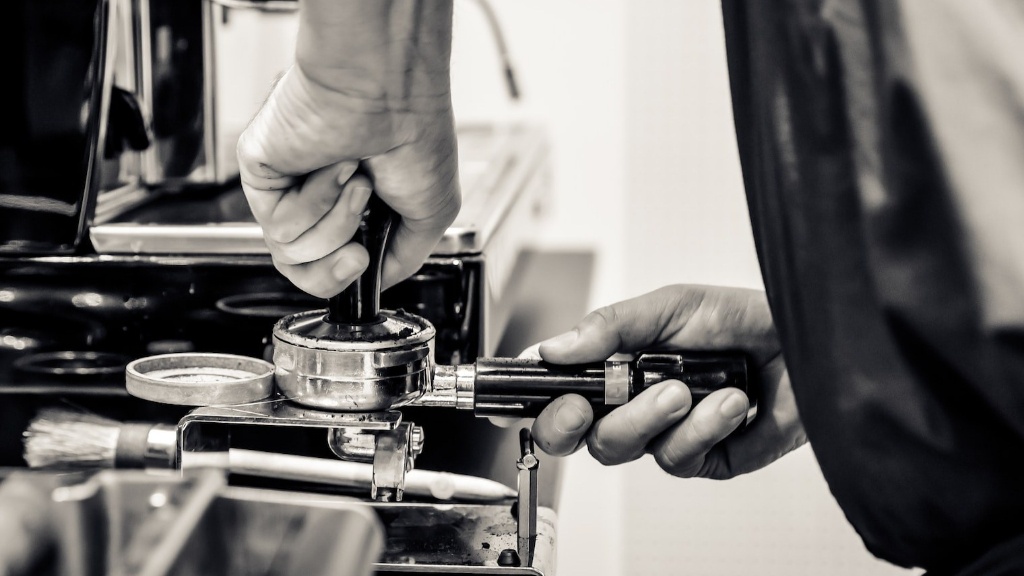The idea of drinking coffee before a cholesterol test may seem counterintuitive, as many health experts suggest avoiding caffeine before certain medical tests. But if you’re a coffee lover, you may be wondering, can I drink black coffee before cholesterol test? The answer is, it depends on the type of cholesterol test you’re undergoing and the way your body responds to different types of caffeine.
First of all, it is important to understand the types of cholesterol tests. A basic cholesterol screening involves measuring your total cholesterol level, which includes your low-density lipoprotein (LDL), high-density lipoprotein (HDL), and triglyceride levels. The more advanced test involves analyzing the particles within the LDL cholesterol fraction to further determine the risk of coronary disease.
Studies have suggested that drinking too much coffee can affect cholesterol levels. In a large-scale study of nearly 30,000 adults, researchers found that those who drank four or more cups of coffee per day had an LDL cholesterol level that was 3.2 milligrams higher than those who drank one cup or less of coffee. While this difference was statistically significant, the authors suggested that it is clinically insignificant.
However, a more recent study evaluated the effect of moderate caffeine consumption on the LDL particle size distribution in adults with normal cholesterol levels. The results showed that drinking one cup of regular or decaf coffee did not have a significant effect on LDL particle size.
Therefore, it appears that drinking a moderate amount of caffeine does not have a significant impact on cholesterol levels. However, it is still important to discuss this with your doctor or healthcare provider before drinking any coffee before a cholesterol test. Some people may be sensitive to caffeine, and it could potentially affect their cholesterol levels.
In addition, if you’re undergoing an advanced cholesterol test, it is best to avoid any type of caffeine intake before the test. This is because caffeine can affect the accuracy of the test results. For example, the test may show higher levels of low-density cholesterol, even if the actual levels are not elevated.
What About Decaf Coffee?
If you’re looking for an alternative to regular coffee before your cholesterol test, you may be wondering about decaf coffee. Decaf coffee still contains some caffeine, but at much lower levels. In fact, the amount of caffeine in a cup of decaf is so low that it isn’t likely to affect your cholesterol levels.
However, it is important to note that decaf coffee still contains other chemicals, such as acids and tannins, which can affect cholesterol levels. Therefore, it is still best to discuss the use of decaf coffee with your doctor or healthcare provider before drinking it before a cholesterol test.
Tips to Remember If You’re Drinking Coffee Before a Cholesterol Test
If you are drinking coffee before a cholesterol test, it is important to remember a few tips to ensure the most accurate results:
- Discuss your caffeine intake with your healthcare provider before drinking any coffee before a test.
- Avoid any type of caffeine if you’re undergoing an advanced cholesterol test.
- Drink coffee in moderation. That means no more than one cup per day.
- If possible, switch to decaf coffee. It still contains some caffeine, but at much lower levels.
Factors That Affect Cholesterol Levels
It’s important to understand that drinking coffee before a cholesterol test is only one factor that can influence your cholesterol levels. There are numerous other factors that can have a significant impact on your cholesterol levels, such as your diet, activity level, and stress levels. Therefore, it is important to make lifestyle changes to lower your cholesterol if it is above the recommended level. This includes eating a healthy diet that is low in saturated fat and cholesterol, exercising regularly, and managing stress levels.
In addition, it is important to speak to your doctor or healthcare provider about any medications you may be taking that could affect your cholesterol levels. Some medications can have an adverse effect on cholesterol levels, so it is important to discuss any medications with your doctor before taking any.
Can I Drink Black Coffee Before Cholesterol Test? The Answer Depends on the Type of Test and Your Responses to Caffeine
The answer to the question, “Can I drink black coffee before cholesterol test?” depends on the type of cholesterol test you’re undergoing and the way your body responds to caffeine. If you’re undergoing a basic cholesterol test, then it is likely safe to drink a moderate amount of coffee before the test. However, if you’re undergoing an advanced cholesterol test, it is best to avoid any type of caffeine intake before the test. In addition, it is important to make lifestyle changes to lower your cholesterol if it is above the recommended level.
What Diet Changes Should I Make to Lower My Cholesterol?
Making dietary changes is one of the most effective ways to lower your cholesterol levels. You should aim to eat a healthy diet that is high in fiber and low in saturated fat and cholesterol. Good dietary choices include fruits, vegetables, whole grains, lean proteins, nuts, and healthy fats. Eating a healthy diet that includes plenty of fruits and vegetables can help reduce your cholesterol by up to 10 percent.
In addition, it is important to limit your intake of foods high in saturated fat and cholesterol, such as red meat, full-fat dairy products, and processed foods. Replace these unhealthy fats with monounsaturated fats, such as olive oil, avocados, and nuts. Limiting your intake of trans fats is also important, as these can raise your cholesterol levels. You can identify trans fats on a food label by looking for the words “partially hydrogenated.”
Are Supplements Effective for Lowering Cholesterol?
In some cases, your doctor may suggest taking supplements to lower your cholesterol. Common supplements include omega-3 fatty acids, red yeast rice, and niacin. However, it’s important to speak to your doctor about the potential benefits and side effects of any supplement before taking it. Some supplements may interact with prescription medications and could have side effects, so it’s important to discuss this with your doctor.
In addition, some studies have suggested that certain supplements may not be as effective as once thought. For example, recent studies have questioned the effectiveness of red yeast rice, while other studies have suggested that omega-3 supplements may only be beneficial in patients who have already been diagnosed with heart disease. Therefore, it is important to speak to your doctor or healthcare provider before taking any supplements.
What Are Some Lifestyle Tips to Help Lower Cholesterol?
Making lifestyle changes is essential for maintaining healthy cholesterol levels. In addition to eating a healthy diet, you should also aim to get at least 30 minutes of physical activity most days of the week. This can include activities such as brisk walking, jogging, biking, swimming, or dancing.
In addition, it is important to manage stress levels and practice stress-reducing techniques, such as meditation, yoga, and deep breathing. Studies have suggested that reducing stress levels can help lower cholesterol levels. It is also important to get enough sleep each night, as sleep deprivation can affect cholesterol levels. Finally, make sure to limit your intake of alcohol, as too much can increase cholesterol levels.




